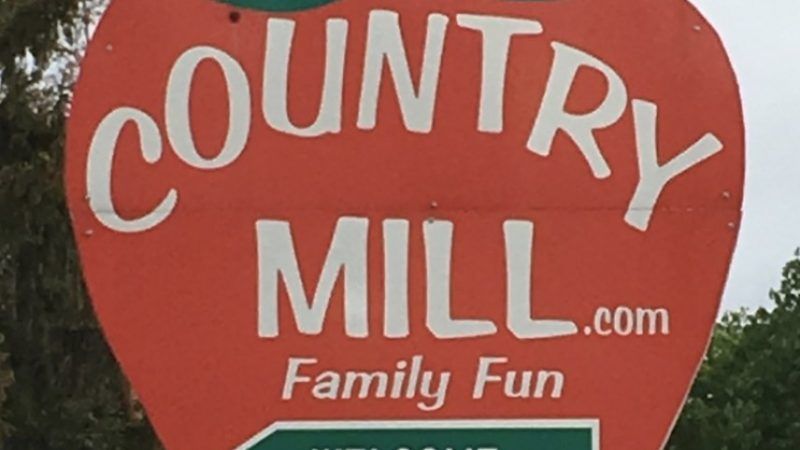A City Uses a Farmer's Views on Gay Marriage to Shove Him Out of the Market
He won't host same-sex weddings, but his farm isn't even within city limits.

![[Tired 'How 'bout them apples?' joke] Country Mill](https://d2eehagpk5cl65.cloudfront.net/img/q60/uploads/assets/mc/2017_06/countrymill.jpg)
A lawsuit in Michigan combines a familiar question—whether a business can refuse to service a gay wedding on religious grounds—with a more unusual question: How far can a local government go to control behavior outside its boundaries?
Steve Tennes, owner of Country Mills Farms, is suing the City of East Lansing for booting it from a city-operated farmers market. Tennes, who is Catholic, believes marriage should be reserved for heterosexual couples. He hosts weddings on his farm, but not for same-sex couples, and he has turned away a lesbian couple in the past. He has also laid out this policy in a Facebook post.
Michigan does not include sexual orientation in its public accommodation laws. The city of East Lansing does include sexual orientation in its own laws, so city officials have told Tennes he can't participate in its farmers market.
County Mills Farms is not within the city limits of East Lansing. It's around 20 miles away. Tennes is not accused of actually violating city law in any way. When he travels to the market in East Lansing, he apparently sells his produce (mostly apples) to all comers.
Tennes' discriminatory behavior takes place outside East Lansing's jurisdiction. But after begging Tennes to drop out of the market and failing (according to the lawsuit), the city updated its law to require those who want to conduct business within East Lansing to follow the city's discrimination laws as "a general business practice." Thus, East Lansing wants to use Tennes' refusal to host same-sex weddings elsewhere as a reason to keep him from doing business within the city.
Tennes is being represented by Alliance Defending Freedom, a religious conservative organization. Its lawsuit presents the familiar claim that Tennes' religious freedom and free speech rights have been violated. But the suit also argues that East Lansing is violating Michigan's Home Rule law by attempting to control Tennes' behavior outside the boundaries of its city. The lawsuit is asking for only a single dollar in damages; what it really wants is the federal government to order East Lansing to let the farmer back into the farmers market.
Note that this is something significantly different from the city setting the rules for private businesses who want to contract with the city itself. Cities often have policies that require contractors to obey their discrimination laws if they want to do business with them. It's the taxpayers' money they're spending, and they have the authority to set the rules for associating with them. (That everybody should have a similar right is lost on them.)
But in this case, East Lansing is setting guidelines to control who can participate in an open marketplace. And it wants to do so based on activities that have absolutely no relationship with what is going on in the market itself. This suggests that the exclusion has more to do with Tennes' views than his behavior.
One possible counterargument would be "It's the city's market, so they should be able to set the rules." But that just raises a larger policy issue: Why is the city running a farmers market in the first place? Many cities have similar markets; East Lansing started its in 2009. According to the lawsuit, there's a complex permitting process and limited space for participation, putting city officials in the position of deciding which private sellers get to profit off sales in this public space and which are refused. It's yet another example of city policies creating a system of winners and losers.
Even if you were support including sexual orientation in public accommodation laws, and even if you support requiring businesses to provide the same services to gay weddings that they do to straight ones, there are larger implications in what East Lansing is doing. Could a city keep a business out for paying lower (but legal) wages to employees outside city limits? Could a city keep a business out for not following other types of regulatory practices that either don't exist or are less restrictive outside the town?
Read the lawsuit here.


Show Comments (119)